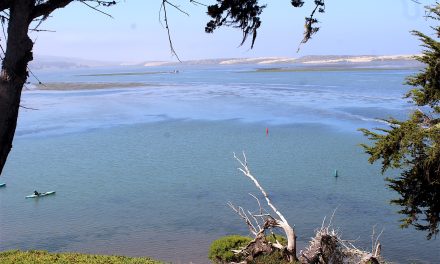Texas company provides power-related products and services to 20 states and 4.3 million residents
By Blake Ashley Frino-Gerl
Vistra Corporation, the owners of the property on which the defunct Morro Bay Power Plant resides, is still set on building a facility to provide battery storage if all the necessary steps pass.
The Texas-based Fortune 500 company provides its power-related products and services to 20 states, including the District of Columbia, serving close to 4.3 million resident, commercial and industrial customers. It offers 50 different renewable energy plans, claiming to combine an “innovative, customer-centric approach to retail with safe, reliable, diverse, and efficient power generation,” according to its website.
According to Jenny Lyon, manager of media relations at Vistra Corporation, the company’s Morro Bay land “remains a premier location for a battery energy storage system due to its Central Coast location and proximity to existing PG&E infrastructure.”
Vistra believes the project will revitalize the land while helping California meet its clean energy goals.
“Battery energy storage is a safe and proven technology with California having safely deployed more than 4,000 megawatts of lithium-ion battery storage,” Lyon says. Battery storage devices are said to have been safely deployed in various circumstances and products.
Vistra’s Battery Energy Storage System (BESS) project will include comprehensive safety systems designed specifically to address fire incidents and other safety concerns.
“The City of Morro Bay is preparing an Environmental Impact Report (EIR) pursuant to the California Environmental Quality Act (CEQA),” Lyon says.
Therefore in the upcoming months, the city is expected to circulate a draft of the EIR for a minimum 45-day public review and comment period. No decision can be made on the application until the CEQA process is complete, which is expected to occur this year. Many opportunities will exist for public participation throughout the CEQA process.
The BESS project contemplates the demolition of the stacks and the development of a master plan. If the BESS project is approved, Vistra anticipates demolition of the stacks and the existing power plant building will follow in accordance with the schedule shown in the final EIR. Lyon also says that the demolition of those structures would facilitate potential future development, including retail, commercial and open space. In addition, any future development would require separate approvals from the city, along with a process for public review and comment.







